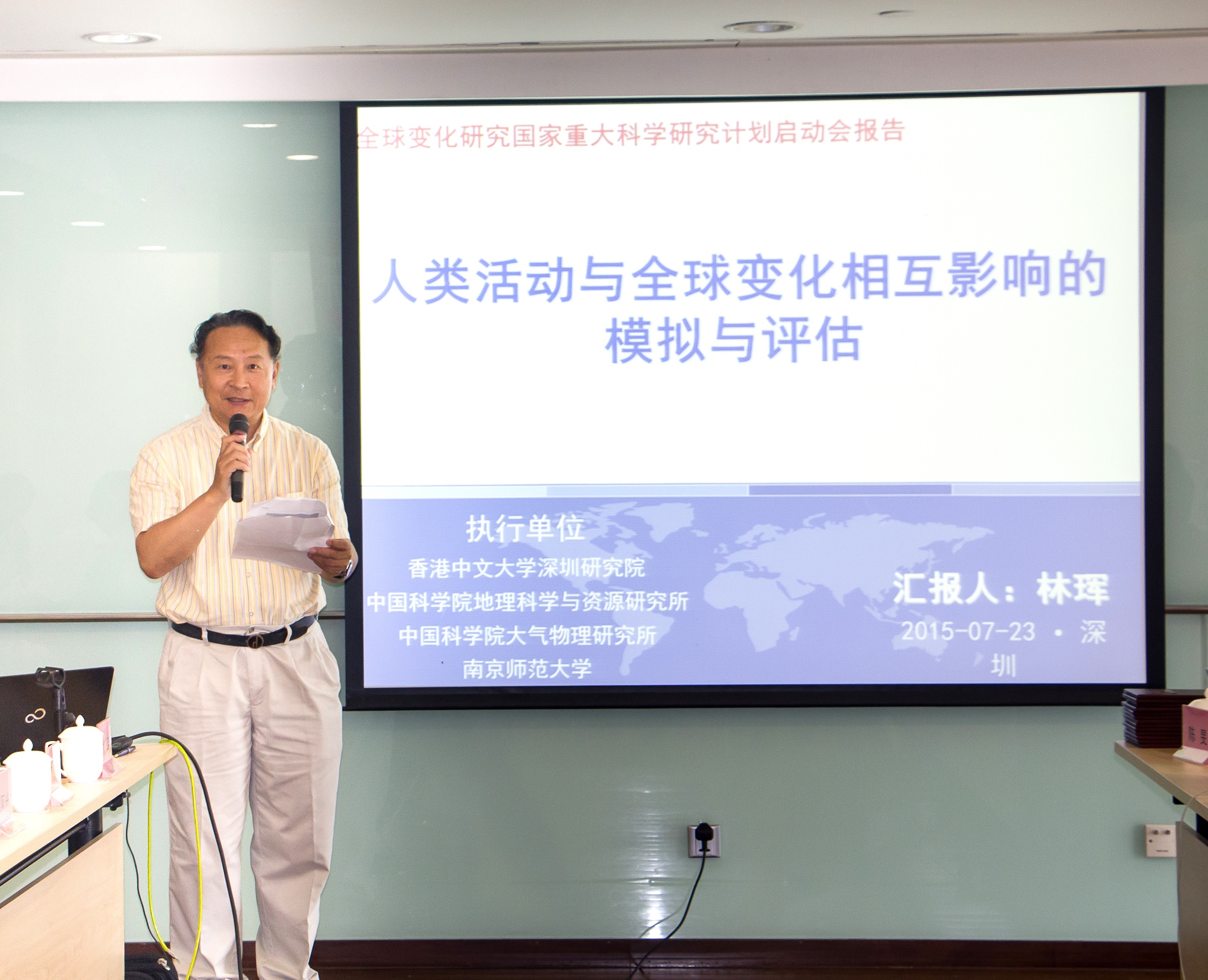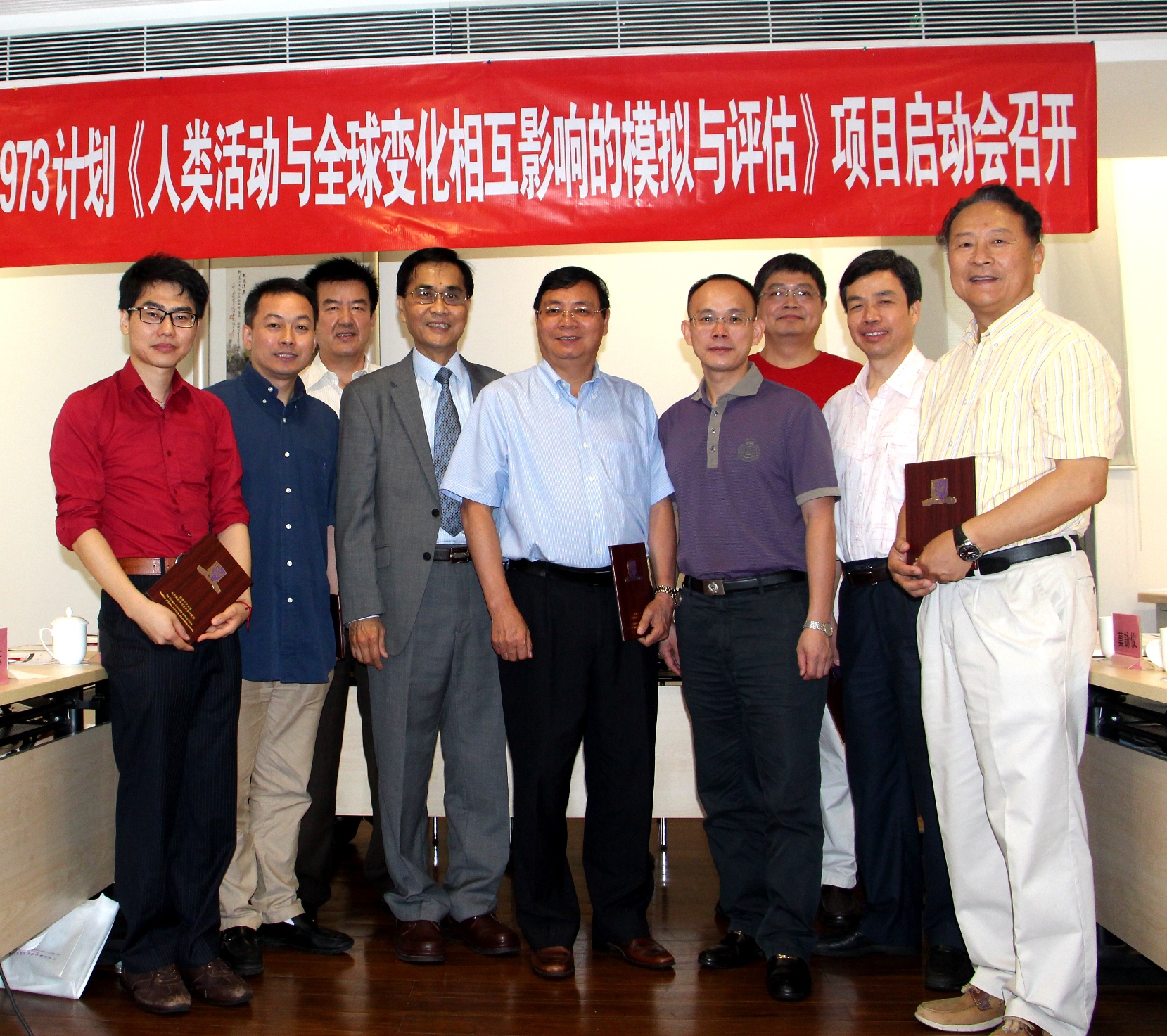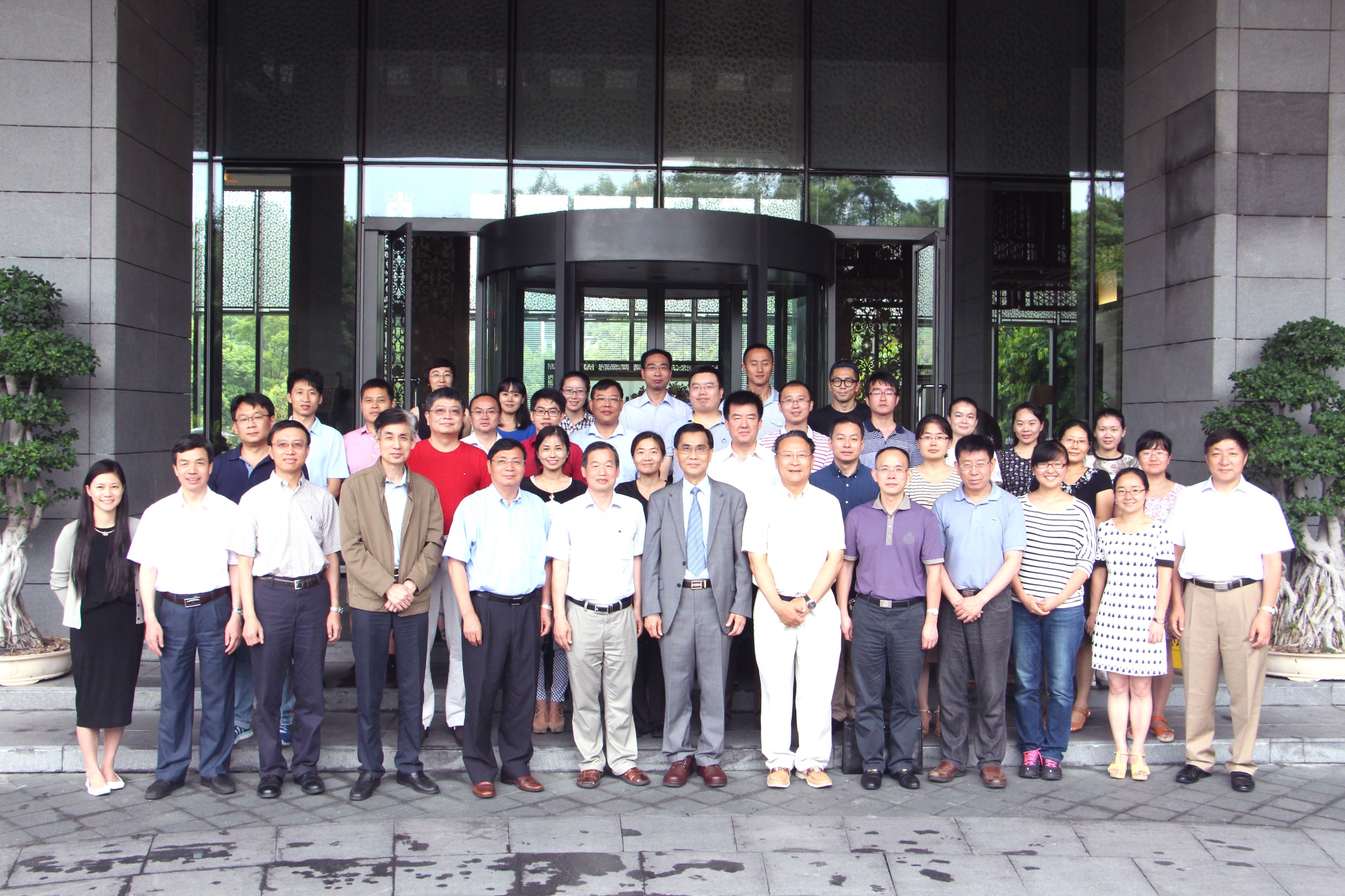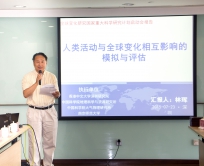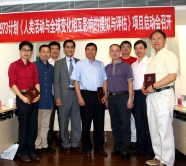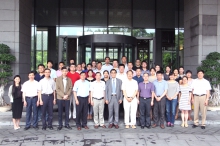CUHK
News Centre
CUHK SZRI Initiates National Key Basic Research Programme’Simulations and Estimations of Interactions between Human Activities and Global Changes’
The inception meeting of the National Key Basic Research Programme of China titled ‘Simulations and Estimations of Interactions between Human Activities and Global Changes’ and chaired by Prof. LIN Hui, the principal scientist of the project, was held at Zijin Villa in Shenzhen recently. Professor Lin is currently the director of the Institute of Space and Earth Information Science (ISEIS) and a professor of the Department of Geography and Resource Management, The Chinese University of Hong Kong (CUHK). This national key programme is led by Shenzhen Research Institute (SZRI) together with the Institute of Atmospheric Physics, the Institute of Geographic Sciences and Natural Resources Research of the Chinese Academy of Sciences (CAS), and Nanjing Normal University.
Prof. CHENG Hon Ki, director of SZRI, Dr. LIU Jia of the Department of Basic Research of the Ministry of Science and Technology of the PRC, and Mr. LIAO Jingyang of the Science and Technology Innovation Commission of Shenzhen spoke at the inception meeting. On this occasion, a ceremony of appointment of the experts of the project was also held. The representative of the expert consultants of the project, Prof. CHEN Jingming, Academician of the Canadian Royal Academy of Sciences and the representative of the experts of the project, Prof. GONG Jianya, Academician of CAS, gave their word that they would strictly monitor the progress of the project and provide advice on project execution.
In the meeting, Prof. LIN Hui introduced the importance, overall scheme, objectives and the expected scientific questions of the whole project and gave a general idea of the division of different research groups. Group leaders of the three sub-projects presented in detail their research designs, technical routes, expected objectives as well as work plans.
All invited experts made comments on the reports presented by Professor Lin and the group leaders. The discussion enhanced the understanding and cooperation of the research teams and laid down a promising foundation for the implementation of this five-year project.
Prof. Cheng Hon Ki, director of SZRI (4 left), and Mr. Liao Jingyang, the Science and Technology Innovation Commission of Shenzhen (4 right) pose for a group photo with experts of the project.


